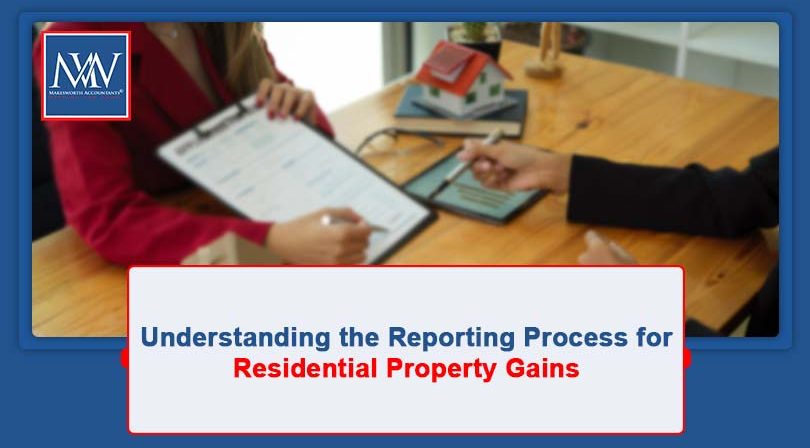
Understanding the Reporting Process for Residential Property Gains
Why Property Owners Are Selling
Property owners may sell their investment properties or second homes for various reasons. Some may want to capitalize on a rising market as buyers hurry to complete transactions before the residential Stamp Duty Land Tax (SDLT) threshold decreases on 1 April 2025. Others might be prompted by the end of the beneficial tax treatment for furnished holiday lets. Additionally, individuals holding properties with significant capital gains may choose to sell while the higher rate of Capital Gains Tax (CGT) on residential properties remains at 24%.
Regardless of the reason for selling, it is crucial to understand the reporting obligations when a capital gain arises from the sale of a UK residential property.
When Is Capital Gains Tax Payable?
No Capital Gains Tax (CGT) is due if the property has been your only or main residence throughout the entire period of ownership, thanks to Private Residence Relief (PRR). However, if the property has been used as a second home, rented out, or not fully covered by PRR, a CGT liability may arise.
Residential property gains are subject to specific reporting and payment rules that differ from other types of capital gains.
Reporting Residential Property Gains to HMRC
If you incur a CGT liability from selling a UK residential property, you must report the gain to HMRC within 60 days of the sale’s completion. If the property is jointly owned, each owner is required to report their share of the gain.
To report the gain, you need to use HMRC’s dedicated online service. You must first create an account and provide the necessary details. You can access the service via the official government website: Report and Pay Your Capital Gains Tax.
Information Required to Report a Gain:
When reporting the gain, be prepared to supply the following details:
- Property address and postcode
- Date of acquisition
- Date of exchange of contracts on sale
- Date of completion
- Purchase price (or market value if applicable)
- Sale price (or market value if applicable)
- Costs related to the purchase and sale
- Expenses for any improvements made
- Any applicable reliefs or exemptions
If you are unable to use the online service, you can contact HMRC to request a paper form for reporting your gain.
Paying the Capital Gains Tax
The CGT owed on the residential property must be paid within 60 days of the sale’s completion. You should calculate the best estimate of your CGT liability, factoring in any applicable annual exemptions or capital losses.
The applicable CGT rates on residential property gains are:
- 18% for gains falling within the basic rate band (£37,700 for the 2024/25 tax year)
- 24% for any portion of gains exceeding the basic rate band
You can pay the tax through your online account using a debit card, corporate credit card, or by authorizing a payment from your online bank account. Alternatively, you may pay by bank transfer or cheque. Always include your 14-character CGT payment reference when making a payment.
Adjustments and Final Tax Calculation
Your initial CGT payment is based on the information available at the time of sale. However, the final CGT liability is calculated once your full tax position for the year is assessed via your Self-assessment tax return. If you later realize losses or qualify for additional relief, you may be eligible for a refund.
Penalties for Late Reporting or Payment
Failing to report and pay CGT on a residential property within the 60-day timeframe can result in interest charges and penalties. To avoid these consequences, ensure you meet the reporting and payment deadlines promptly.
Partner note: TCGA 1992, Sch. 1B.
For more information, Book a Free Consultation
Need Accountancy Support?
For information on bespoke training, or if you have any other questions for Makesworth Accountant, please fill in your details below
















 151
151